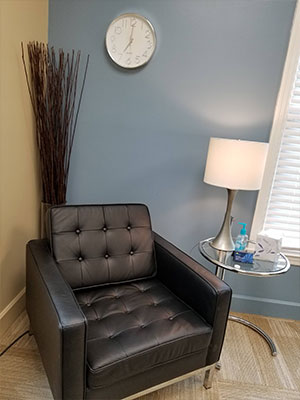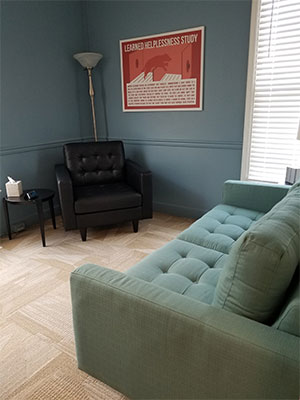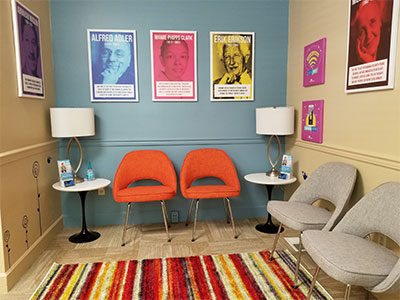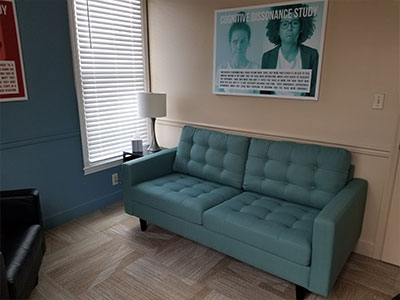Will has been at his new job for about a year now. It is his first full-time gig after graduating, and he is struggling. Will knows he can do the work, but the stress is getting to him. This is his dream job, but he had to move away from his family and friends to take it. He lives in an apartment by himself, and he comes home every evening and plays video games long into the night. Sometimes, Will plays through the night and goes to work without any sleep. He has tried to cut back a few times, but within a few days, he is gaming around the clock again. Will wants to change, but he does not know how. He is starting to wonder if he may have a video game addiction.
The Diagnostic and Statistical Manual of Mental Disorders, Fifth Edition (DSM-5) gives diagnostics for “internet gaming disorder”—what most people call a video game addiction. While the DSM-5 calls for more study before labeling compulsive video game use an addiction, it acknowledges that many people struggle with impulse control regarding video games. Many people are playing video games more often and for more time than they intend, and many adults and children are having trouble cutting back their game play.
Interventions such as twelve-step programs, similar to Alcoholics Anonymous, are available. Many people are also turning to therapy and meeting with a mental health professional to regain control over their video game use.
Thriveworks Columbia sees many adults and many adolescents who need help with their gaming. Our therapists have empowered many people to overcome internet gaming disorder.
Recognizing the Signs of Internet Gaming Disorder
Video game addiction—or internet gaming disorder—is a misplaced emotional attachment. Instead of turning to friends, family, and loved ones, people connect with video games or their online avatar. As the connection grows, self-control often wanes. People may experience seemingly uncontrollable impulses to game.
The DSM-5 outlines diagnostics for recognizing internet gaming disorder. These signs share many similarities with other behavior addictions, such as gambling. Depending upon how many symptoms are display, people who engage in the following behaviors may have severe, moderate, or mild internet gaming disorder:
- Misguided priorities: Spending more time and money on video games than one’s family, friends, career, or education.
- Tolerance: Gaming for a longer time period or more often to reach the feelings of pleasure, comfort, or achievement.
- Deceit: Misleading friends, family members, accountability partners, or therapists about one’s gaming habits.
- Avoidance: Evading everyday challenges and difficulties in real life by playing online video games.
- Obsession: Thinking about gaming constantly, whether one is playing or not.
- Withdrawal: When one cannot play or is curbing play, feeling moody, restless, irritable, and depressed.
- Escape: Using video games to relieve difficult feelings such as depression, loneliness, anxiety, sadness, guilt, boredom, or shame.
In addition to these symptoms, parents should take note if their children or teens exhibit the following:
- Not finishing homework or other school assignments.
- Drowsiness at school or sleeping during the day.
- Stopping or losing interest in friends, activities, and sports.
- Poor grades.
- Playing video games alone.
How Do Compulsive Gaming Habits Form?
There is still more research to be conducted, but some mental health professionals believe that the compulsion loops, or core loops, that are written into many video game’s narratives are contributing to the prevalence of internet gaming disorder. The loops work by giving gamers a challenge with a reward for completion. The reward immediately ties into the next challenge, leading gamers further into the game’s storyline. The reward also releases dopamine within each player’s brain, solidified the brain’s association between pleasure and gaming.
Monster Hunter, for example, is one of many games that uses this strategy. Player are tasked with hunting and killing monsters (the challenge). With each monster they slay, they gain that monster’s powers (the reward). With their new powers, they can hunt and defeat more monsters (the reward loops into the next challenge).
Finding Help for Internet Gaming Disorder at Thriveworks Columbia
Are some of the behaviors listed previously a part of your video gaming habits? How about your child’s? If so, you are not alone. More and more people are having difficulty regulating how often and how long they play video games. And help is available.
If you want to speak with a mental health professional, Thriveworks Columbia has appointments for internet gaming disorder available. We work with children, teens, and adults. We know what it takes to regain control, and we have helped many people find their way.
When you reach out to Thriveworks Columbia, know that we have done our best to make scheduling an appointment as convenient as possible. New clients often meet with their therapists within 24 hours of their first call. We offer evening and weekend appointments. We also work with many insurance companies.
If you are ready to get started, we are too. Call Thriveworks Columbia today.








